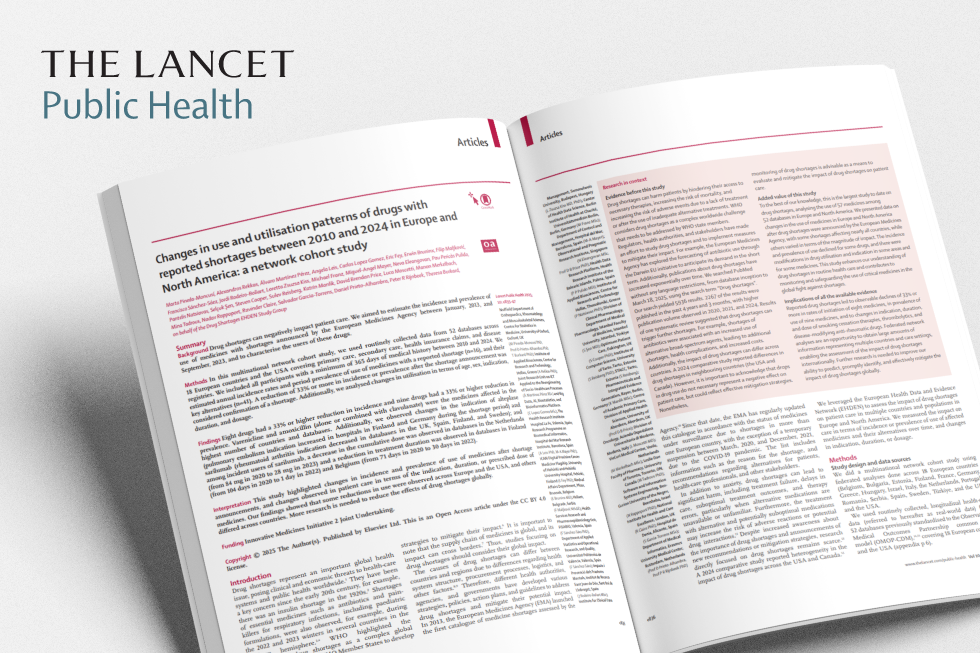In one of the most comprehensive analyses to date on global medicine shortages, the list of authors includes Filip Maljković, Head of the Development Team at Heliant, and MD Ana Danilović Bastić from the Clinical Hospital Centre Zvezdara.
The study, published in the prestigious journal The Lancet Public Health, covered 52 databases from 18 European countries and the United States, examining the period from 2010 to 2024. The analysis included hundreds of millions of health records — from primary and secondary healthcare, through insurance funds, to national registries. The database from CHC Zvezdara alone contains more than 618,000 individual records, making Serbia a notable contributor to this major international network.
The aim of the research was to investigate how medicine shortages, announced by the European Medicines Agency (EMA) between January 2013 and September 2023, affected their use and the behaviour of healthcare systems. The analysis covered 57 medicines — 16 of which had officially reported shortages, while the others were monitored as key alternatives. Scientists measured changes in prescribing frequency and medicine use, as well as variations in indications, dosages, and treatment durations.
The results show that for eight medicines, there was a decline of at least 33% in the number of new users, while for nine medicines, a decrease was also recorded in the total number of users after shortages were officially reported. The most significant shortages were observed for varenicline (used for smoking cessation) and amoxicillin (an antibiotic), which affected multiple countries and led to notable shifts in the prescribing of alternatives.
This major international study highlights that medicine shortages are not merely temporary logistical issues, but rather long-term challenges that can impact treatment pathways, therapy duration, and the occurrence of adverse effects. The World Health Organization (WHO) emphasized the significance of medicine shortages as a complex global issue, urging member states to develop strategies to mitigate their impact.
“The collaboration between public and private institutions on a project like this demonstrates how joint efforts can help us understand global health risks and develop better strategies to address them,” said Filip Maljković. MD Ana Danilović Bastić added: “Studies like this help identify supply issues in time and enable healthcare systems to be better prepared for rapid response.”
